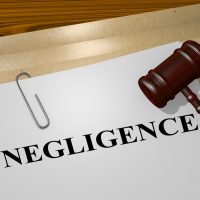What Is Negligence? A Detailed Look

If you believe you may have a personal injury case, you may be interested in the component parts of that case, and about what you have to prove. Read below for a detailed explanation of the parts of a negligence suit, just one type of claim you may have.
Duty
When assessing a negligence case, the first question is, did the defendant (the person being sued) owe the plaintiff (the person doing the suing) a duty of some kind? In some cases, a defendant might owe a special duty of care to the victim or plaintiff. A case of this type might be a medical malpractice case, in which the standard is the amount or variety of care that a reasonably competent, prudent physician — in good standing, and of same or similar educational background and geographic location — would administer under same or similar circumstances. In other cases, the defendant may just have a duty to act as a person of reasonable caution would under the same circumstances, like in a motor vehicle accident case.
Breach
The next step is to analyze whether that duty has been breached by the defendant. Did the defendant do something outside of what a reasonable person would do, like run a stop sign, leave a sponge inside a patient on which he or she was operating, or do some other thing that a reasonably cautious person would not do? This can be complicated to assess, because the reasonable person standard is so subjective.
Damages
The next step is to prove that the breach caused damages that require compensation. This element requires that the court be able to compensate the plaintiff for his or her injury — usually through monetary compensation for expenses such as medical care or property repair. Other types of damages may be loss of earnings or loss of future earnings, medical bills like mentioned above, cost of future medical care, household expenses, costs associated with cancelled plans, pain and suffering, loss of personal enjoyment, mental anguish, and loss of consortium. As you can probably guess, some of these damages are more easily measured than others. Even if someone breached a duty to you, if you have no damages, you will not have a proper claim that can be adjudicated, because you will not be owed any compensation.
Causation
The final element is causation. The plaintiff must show that the defendant’s negligence actually caused his or her injuries for which compensation is required. Sure, someone might be acting negligently, but the plaintiff can only recover if this negligence somehow causes the injury. For example, it wouldn’t be fair to sue someone who was negligently texting and driving for a totally unrelated fender bender that happened just across the street — just because the driver was negligent. One important aspect of causation is foreseeability- if the defendant’s actions caused the plaintiff injury in a foreseeable way, the defendant will probably be responsible. But if the defendant caused the plaintiff injury in a totally unforeseeable way or implausible chain of events, then the defendant might not be held legally responsible for the injury.
What Do I Do If I Think I Have a Case?
Don’t hesitate to reach out to the Columbia personal injury attorneys at the Stanley Law Group for help. Call 803-799-4700 and set up a consultation today.
https://www.thestanleylawgroup.com/preventing-slip-and-fall-accidents/

